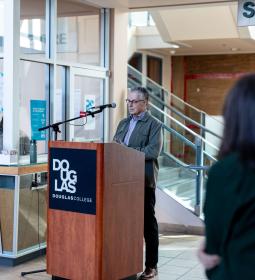Many people want to have a creative profession because they are already tired of working 5/2 in an office. But often people are dissuaded from entering creative universities, saying that it is not promising and you will not earn much on it. Is this really so?
Musical sphere
In music institutes, you will study everything related to the history of music, theory, solfeggio, harmony, you will learn acting and stage movements. Knowledge in the field of psychology and the basics of production and entrepreneurship in the music industry are no less important. You will devote a lot of time to practice: learn to conduct, mix tracks, play instruments, come up with music, and so on.
It is important for musicians to develop empathy and understand the psychology of the audience, because music should evoke deep emotions in listeners. It is important for artists to come up with a stage image for themselves, to develop communication and oratory skills.
Musicians can work in theaters, concert venues, musical groups, educational institutions, music labels, or engage in private practice by starting their own business.

Advantages and disadvantages
On the plus side: you can become popular, earn a lot of money, express yourself creatively, participate in numerous projects and go on tour. But musicians have a hard schedule, which affects their health, they do not have financial stability, they need to constantly practice to maintain their skills. However, the latter is true for any specialty.
Dance industry
Career paths in the dance industry are diverse: you can become a dancer, ballet dancer, choreographer, choreographer or director.
The dancers practice a lot, every day they have intensive practical classes in the chosen style of dance and general physical training, since the body is the main tool of the artist. Knowledge of acting and stage movements is important, students also study theory, for example, the history and theory of arts.
Dancers and choreographers can find work in theater and dance companies, ice shows, private troupes, and educational institutions.

Advantages and disadvantages
This, of course, is a creative profession, each artist can apply different masks and roles. Those who open their own school will be able to do what they like every day, have a flexible work schedule, and those who finish their career in the theater as a dancer will be able to go to teach or become, say, a dance therapist.
But the profession requires constant training and rehearsals, and this increases the chance of injury due to high physical exertion. Careers, especially in ballet, do not last long, dancers leave the stage early. Income depends on popularity and place of work.
Film and Theater
There are a huge number of professions that you can master: actor, director, screenwriter, producer, stuntman, cameraman, editor, costume designer, prop master, makeup artist, etc.
Future specialists in theater and cinema study world and domestic history of art, including literature, music and visual arts — all these are elements of the language of cinema and theater. It is necessary to master the basics of acting, the stages of production of productions and films, as well as technical aspects - working with light, sound and composition of scenes.
Every artist should develop artistic taste and imaginative thinking. Producers and directors must additionally be able to manage finances, personnel, and marketing to ensure the commercial success of their projects.

Advantages and disadvantages
You can become famous, earn a lot of money, participate in large projects. You will work in various genres and formats, realize yourself through a variety of roles and projects, build an international career and participate in major festivals and competitions.
Among the disadvantages is the fact that your work will be perceived subjectively, so it is not at all guaranteed that you will gain widespread popularity. Movies and TV shows are shot for quite a long time, with a 6/1 schedule, often you need to combine several projects at once, which is very difficult.
Artistic sphere
In the artistic field, you can work directly as an artist, sculptor, art critic, architect, illustrator, 3D modeler, restorer, animator, photographer, art manager and teacher.
Specialists in the field of art study the world history of art, theory, the basics of composition, perspective and coloristics. Each specialization requires unique knowledge: for example, architects must understand engineering, and photographers must understand photography and lighting.
Art historians and creative professionals can work as freelancers, open their own studios or galleries, work in theaters, design bureaus, museums, restoration workshops or educational institutions.

Advantages and disadvantages
The main reason why everyone goes into this field is the opportunity to turn a hobby into a source of income and self-realization. There is an unlimited potential for income growth depending on success and popularity, flexible work schedules, especially freelancing, a variety of career paths, including the opportunity to work in interdisciplinary and innovative projects.
Disadvantages: subjectivity in the perception of creativity, which can lead to non-recognition and criticism, income instability (especially in the early stages of a career or in less popular regions), and the need for compromises between creative ideas and commercial interests to ensure financial stability.
Journalism
You can be an author, editor, reporter, TV presenter, analyst, photographer, cameraman, press secretary, media planner, etc. Journalists can work in print and electronic media, press services, corporate communications, write their own blogs or media projects.
Media professionals need to be able to search, analyze, and provide information in a variety of formats, and they need to have fact-checking skills to avoid spreading false data. Journalists must be well-versed in media laws, have an in-depth knowledge of history, current trends in journalism and the field they cover. Knowledge of foreign languages, of course, will expand the prospects for an international career.

Advantages and disadvantages
Working in journalism allows you to be in the center of events and expand your professional circle of communication. Such professionals often have access to exclusive events and can become famous authors.
But journalists often face irregular work schedules and high levels of stress. The job can be risky, especially for those who cover conflicts or work in volatile regions. Dependence on editorial policy and external pressure can limit journalistic freedom. Of course, among the disadvantages is the unstable salary, which depends directly on funding in the media.
Creative professions, like any other, have their pros and cons: you can achieve stunning success and earn millions — or, conversely, be an unclaimed specialist without a job. It's all about perseverance and determination.










